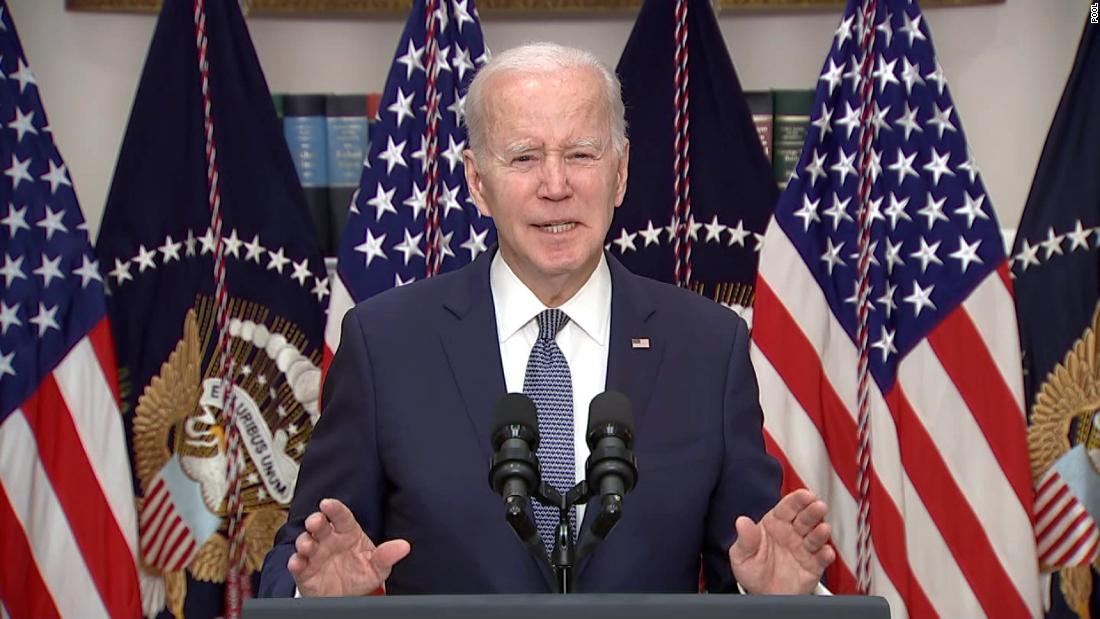
March 13, 2023 Latest on the Silicon Valley Bank collapse
From CNN’s Aditi Sangal
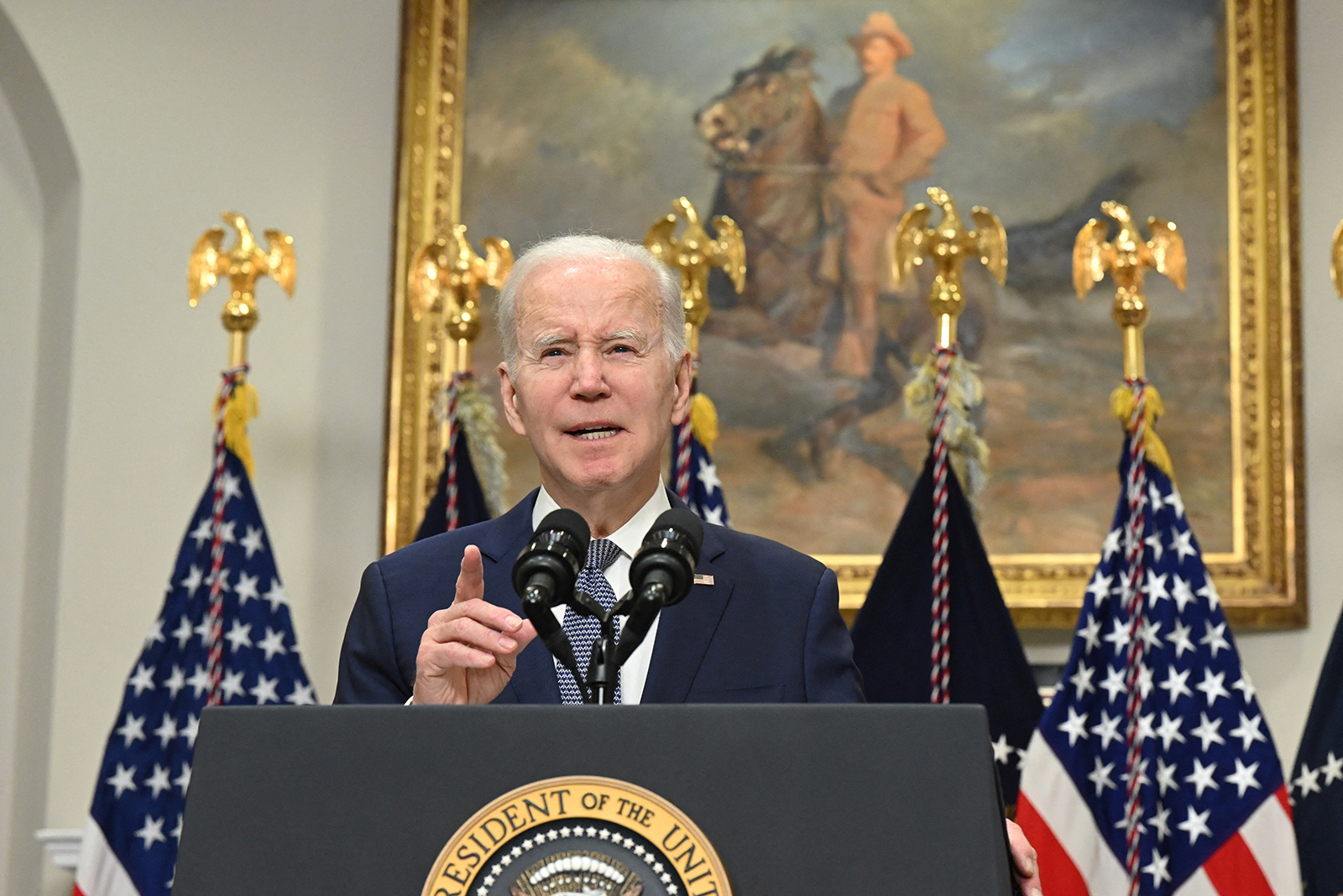
President Joe Biden addressed the nation Monday to assure Americans that the banking system is safe after the collapse of Silicon Valley Bank and Signature Bank. In his speech, he highlighted the immediate action that his administration has taken.
Customers’ deposits will be protected: Customers will “have access to their money as of today. That includes small businesses across the country that bank there and need to make payroll, pay their bills and stay open for business,” Biden said, adding that no losses will be suffered by the taxpayers.
“Instead, the money will come from the fees that banks pay into the deposit insurance fund,” he explained.
The management of these banks will be fired: “If the bank is taken over by FDIC, the people running the bank should not work there anymore,” Biden said.
Investors in the banks will not be protected: “They knowingly took a risk and when the risk didn’t pay off, investors lose their money. That’s how capitalism works,” Biden added.
Logging a full account of what happened: Biden stressed the importance of holding those responsible accountable. “In my administration, no one is above the law,” he said.
Reducing the risk of this happening again: Citing the requirements put in place during the Obama administration, including the Dodd-Frank Act, Biden said there were rules in place to prevent a repeat of 2008. But he added that the Trump administration rolled some of these regulations back.
“I’m going to ask Congress and the banking regulators to strengthen the rules for banks, to make it less likely this kind of bank failure would happen again,” he said. “And to protect American jobs and small businesses.”
Reassuring that while the banking system is safe, he also said the administration will not stop at this.
Biden: Small businesses can “breathe easier knowing they’ll be able to pay their workers”
From CNN’s Aditi Sangal
US President Joe Biden on Monday addressed the nation after the collapses of Silicon Valley Bank and Signature Bank, and said, “Americans can have confidence that the banking system is safe.“
“Your deposits will be there when you need them. Small businesses across the country that have deposit accounts at these banks can breathe easier knowing they’ll be able to pay their workers and pay their bills,” he said in his Monday address.
Biden plans to emphasize US banking system is “safe” in his Monday remarks
From CNN’s MJ Lee
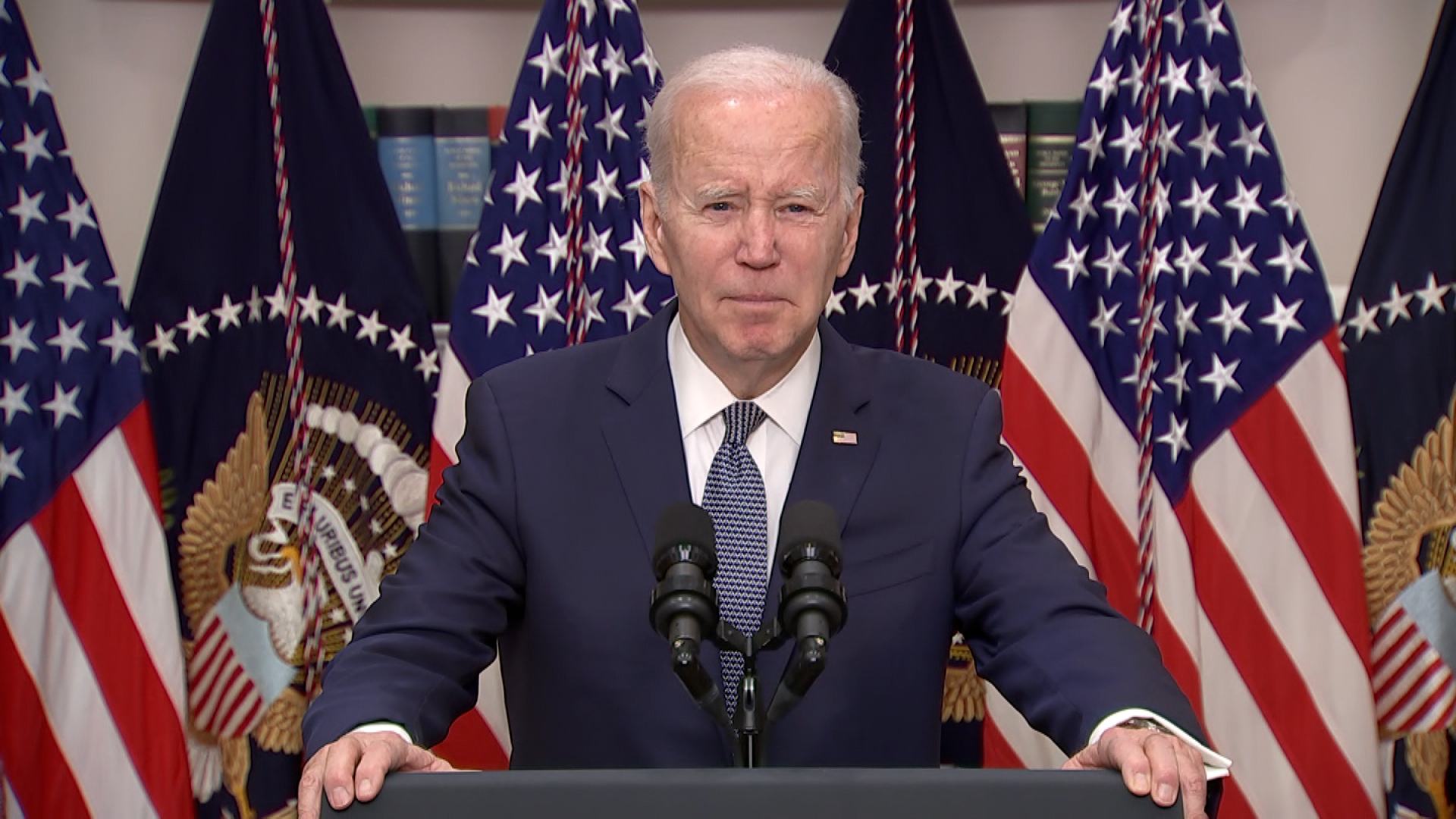
When President Joe Biden speaks in the next hour following the dramatic actions his administration last night to try to contain Silicon Valley Bank’s collapse, he plans to emphasize that the US banking system is “safe,” according to a White House official.
“The president will tell Americans they can have confidence that our banking system is safe, and their deposits will be there when they need them,” the White House official said.
The remarks, which were announced last night, will be an effort by Biden himself to directly explain to the public what exactly he has instructed his administration to do to protect small businesses and workers in particular.
The actions he’ll emphasize include backstopping depositors’ funds, taxpayers not being on the hook for these moves, holding those responsible accountable and not extending relief to investors of Silicon Valley Bank.
It remains to be seen how exactly Biden plans to hold those responsible “accountable” – and who he deems responsible for the collapses.
Banking stocks slump despite moves to protect Silicon Valley Bank’s customers
From CNN’s Anna Cooban
Investors are dumping bank stocks Monday, extending Friday’s losses, despite dramatic weekend moves by the US and UK governments to shore up confidence in the financial system following the collapse of Silicon Valley Bank.
The Biden administration said Sunday that it would guarantee all SVB’s deposits held by American customers, while the British government helped orchestrate the sale of SVB UK to global banking giant HSBC, averting its insolvency.
- Europe’s benchmark Stoxx Europe 600 Banks index, which tracks 42 big EU and UK banks, fell 5.6% in morning trade — notching its biggest fall since June.
- The broader Stoxx Europe 600 index dropped 2%.
- The bank-heavy FTSE 100 slid 1.8%.
- Shares in embattled Swiss banking giant Credit Suisse were down 11.3%.
The shares of other major European banks were also being dumped: Barclays fell 4.2%, Deutsche Bank 5.5% and Italy’s Unicredit 7.5%.
Smaller US banks were even worse off. Shares in First Republic and PacWest Bancorp cratered 60% and 35% respectively in pre-market trading.
The falls have heightened fears that the second-biggest banking collapse in US history may be sparking contagion in the sector that could lead to further failures.
“Investors have still been shaken by the events of the past few days,” aid Susannah Streeter, head of money and markets at investing platform Hargreaves Lansdown, adding that investors are waiting to see if there will be a spillover, creating a pool of fresh problems.
“The pre-market freefall of shares in First Republic bank in the US has added heightened worry to those concerns. There is expectation that weaknesses remain in pockets of the system and the US Treasury may have to step in with further guarantees of deposits at other banks and at least lift the ceiling of the insured deposit guarantees,” she said.
Fed will pause rate hikes at meeting next week, says Goldman Sachs
From CNN’s Nicole Goodkind
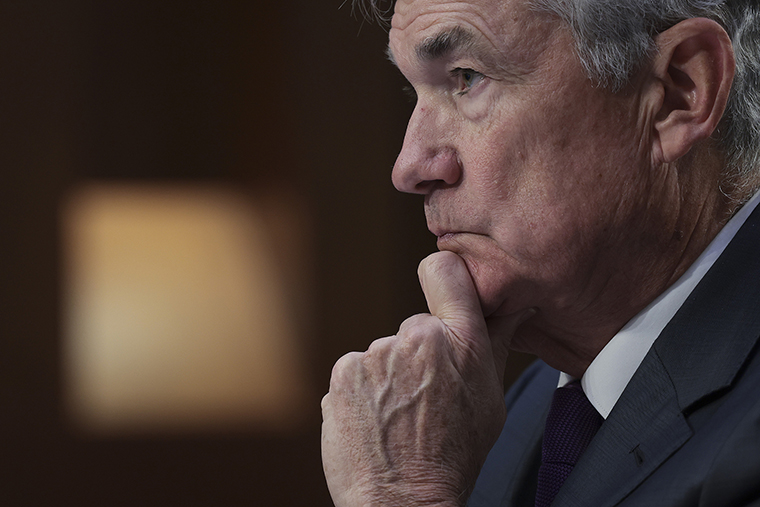
Just last week, markets were convinced that Federal Reserve Chairman Jerome Powell had opened the door to an aggressive half-point interest rate hike at the central bank’s policy meeting next week.
On Monday, Wall Street attempted to close that door.
Citing the sudden outbreak of financial trouble at US regional banks, Goldman Sachs economists wrote in a note Monday that they no longer expect the Fed to deliver a rate hike at all.
The probability of no hike was at about 30% in pre-market trading Monday (though the number was moving quickly and swinging with great volatility), according to the CME FedWatch Tool, up from 0% on Friday.
That’s because many on Wall Street believe that the Fed’s aggressive regimen of rate hikes has undercut the value of bonds and could trigger a recession. They blame the current tightening cycle for the regional banking crisis spurred by rapid withdrawals from Silicon Valley Bank and Signature Bank.
Goldman Sachs had previously predicted that the Fed would raise interest rates by a quarter point at its meeting next week, but Goldman’s Jan Hatzius wrote in a note Monday that there was now “considerable uncertainty” about the central bank’s path forward.
While calls have increased for the Fed to pause its tightening cycle, “the reality is somewhat more complex, and those betting on the Fed to end its tightening cycle early because of current banking sector stress may be misguided,” wrote EY Chief Economist, Gregory Daco. He’s projecting that the Fed will hike interest rates by a quarter point next week.
Michael Feroli, chief US economist at JPMorgan Chase, also wrote on Sunday that he was expecting a quarter-point rate hike.
The Federal Reserve, meanwhile, has entered the quiet period ahead of its policy meeting next week and cannot comment or issue guidance on the way forward.
Additionally, 2-year Treasury yields tumbled by half a percentage point Monday morning to just under 4.1% and are on pace to hit their largest three-day decline since Black Friday in October 1987.
Biden will speak about US banking system and Silicon Valley Bank collapse soon from the White House
From CNN’s Sam Fossum and Aaron Pellish
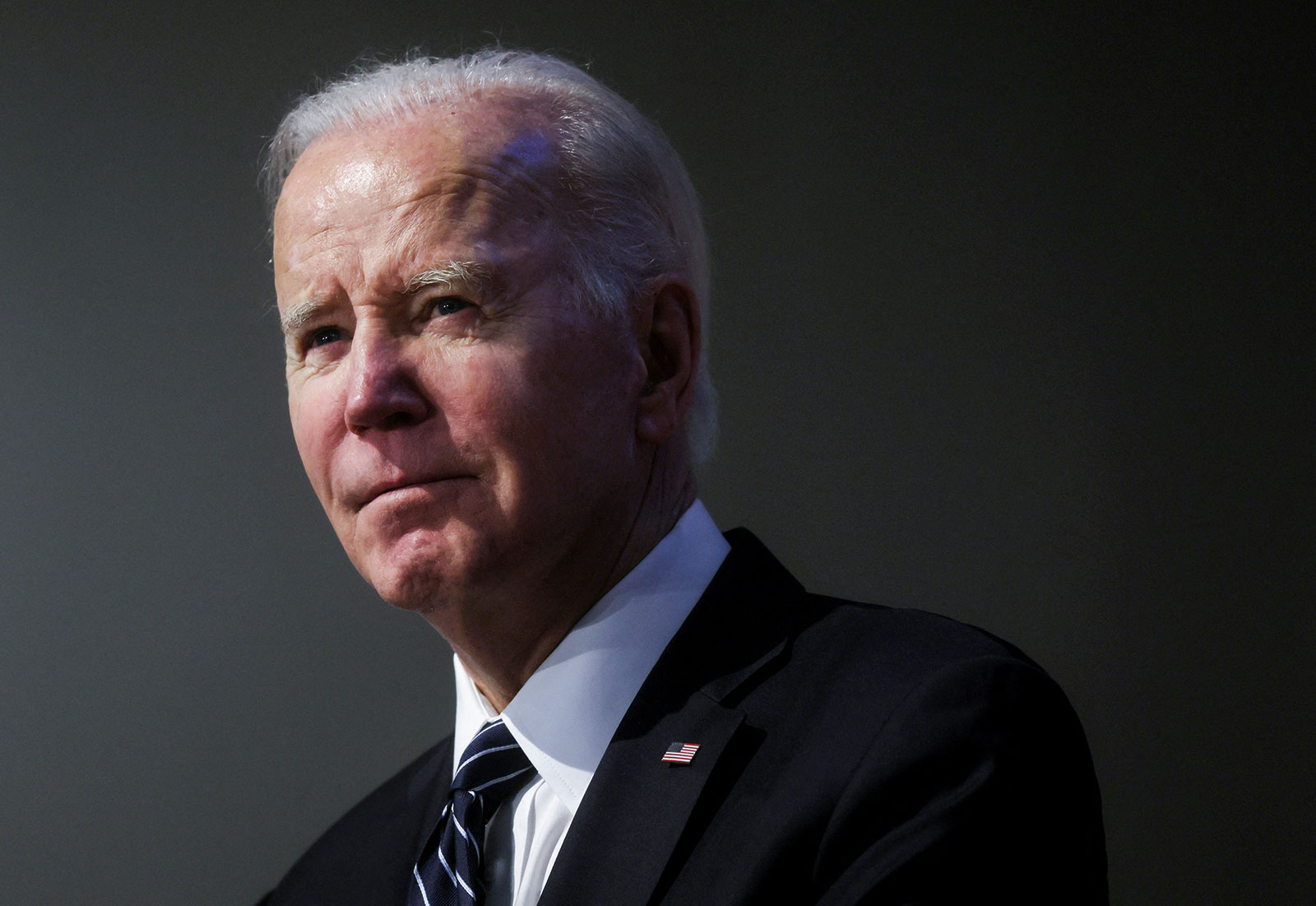
President Joe Biden is set to address the developing situation in the US banking system at 9 a.m. ET, according to the pool.
“Yes. I’ll talk to you tomorrow morning,” Biden told reporters Sunday in response to a question about addressing the situation as he boarded Air Force One to return to the White House.
Biden will deliver remarks before departing for San Diego where he is scheduled to meet the prime ministers of the United Kingdom and Australia.
“Absolutely idiotic”: Silicon Valley Bank insider says employees are angry with CEO
From CNN’s Matt Egan
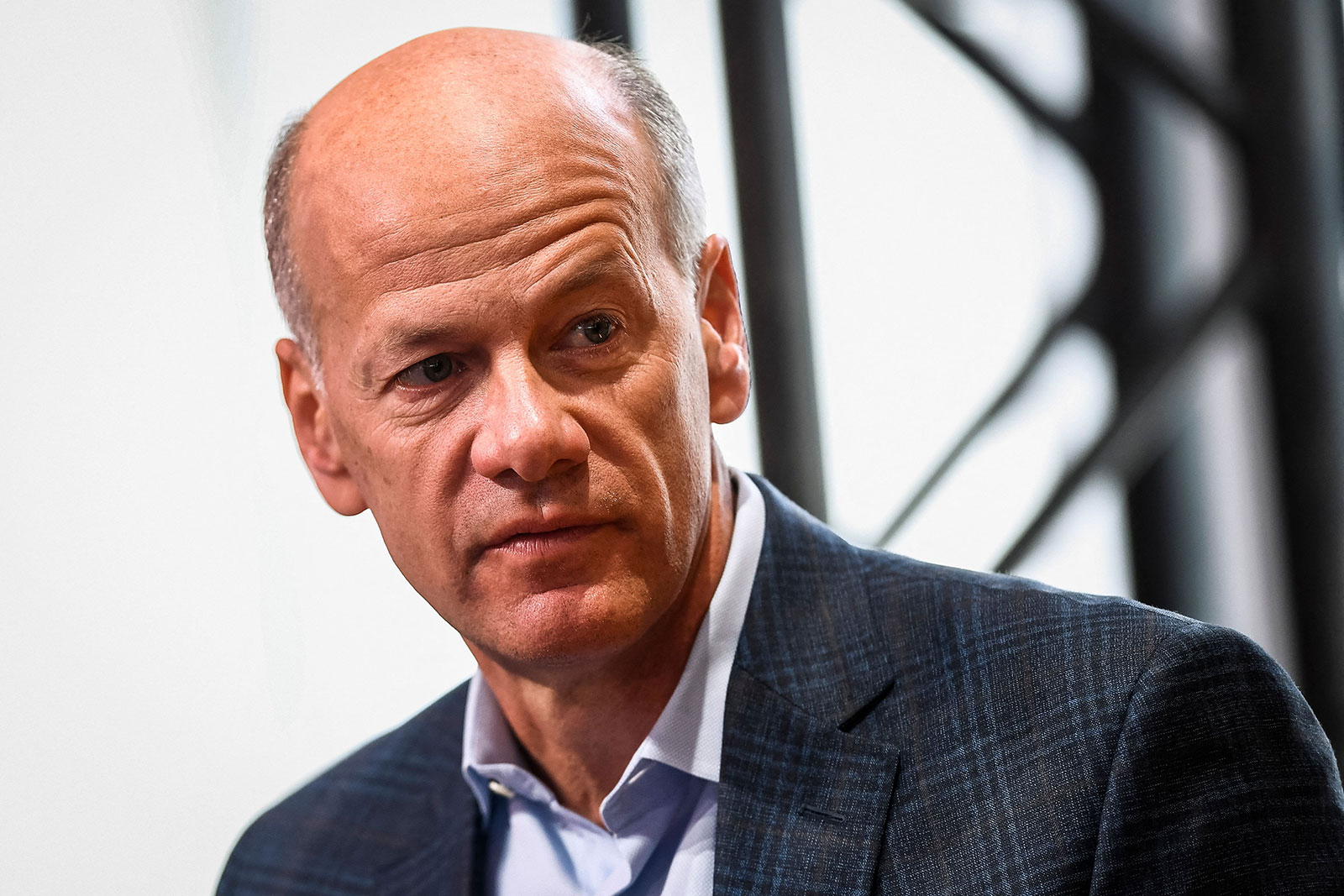
One Silicon Valley Bank employee, who requested anonymity to speak candidly, pointed the finger at CEO Greg Becker for allowing the company to go down in history as the second-biggest US banking failure on record.
The employee said they were dumbfounded by how Becker publicly acknowledged the extent of the bank’s financial troubles before privately lining up the necessary financial support to ride out the storm.
This set the stage for the panic that ensued as customers scrambled to pull their money.
“That was absolutely idiotic,” the employee, who works on the asset management side of Silicon Valley Bank, told CNN in an interview. “They were being very transparent. It’s the exact opposite of what you’d normally see in a scandal. But their transparency and forthrightness did them in.”
“People are just shocked at how stupid the CEO is,” the Silicon Valley Bank insider said. “You’re in business for 40 years and you are telling me you can’t raise $2 billion privately? Get on a jet and fly to Kuwait like everyone else and give them control of one-third of the bank.”
Silicon Valley Bank did not respond to requests for comment but Becker has reportedly apologized to employees about the situation.
Because Silicon Valley Bank had sufficient capital far in excess of regulatory requirements, the announcement of an unsubscribed $2.25 billion capital raise Wednesday night was “unnecessary,” according to Jeff Sonnenfeld, CEO of the Yale School of Management’s Chief Executive Leadership Institute (CELI) and Steven Tian, CELI’s research director.
There was no need to simultaneously reveal the $1.8 billion loss, they added, saying the announcements should have been spaced out by a week or two to manage the response. The one-two punch “understandably sparked widespread hysteria amidst a rush to pull deposits.”
US banks are sitting on unrealized losses of $620 billion
From CNN’s Nicole Goodkind
Silicon Valley Bank’s collapse last week sent tingles of panic down investors’ spines as it highlighted a larger problem across the banking sector: The widening gap between the value large lenders place on the bonds they hold and what they’re actually worth on the market.
SVB’s downfall was tied, in part, to the plunge in the value of bonds it acquired during boom times, when it had a lot of customer deposits coming in and needed somewhere to park the cash.
But SVB isn’t the only institution with that issue. US banks were sitting on $620 billion in unrealized losses (assets that have decreased in price but haven’t been sold yet) at the end of 2022, according to the FDIC.
What’s happening: Back when interest rates were near zero, US banks scooped up lots of Treasuries and bonds. Now, as the Federal Reserve hikes rates to fight inflation, those bonds have declined in value.
When interest rates rise, newly issued bonds start paying higher rates to investors, which makes the older bonds with lower rates less attractive and less valuable.
The result is that most banks have some amount of unrealized losses on their books.
“The current interest rate environment has had dramatic effects on the profitability and risk profile of banks’ funding and investment strategies,” said FDIC Chairman Martin Gruenberg in prepared remarks at the Institute of International Bankers last week. “Unrealized losses weaken a bank’s future ability to meet unexpected liquidity needs.”
In other words, banks might find they have less cash on hand than they thought — especially when they need it — because their securities are worth less than they expected.
“Many institutions — from central banks, commercial banks and pension funds — sit on assets that are worth significantly less than reported in their financial statements,” said Jens Hagendorff, a finance professor at King’s College London. “The resulting losses will be large and need to be financed somehow. The scale of the problem is starting to cause concern.”
Still, there’s no need to panic yet, say analysts.
“[Falling bond prices are] only really a problem in a situation where your balance sheet is sinking quite quickly… [and you] have to sell assets that you wouldn’t ordinarily have to sell,” said Luc Plouvier, senior portfolio manager at Van Lanschot Kempen, a Dutch wealth management firm.
Most large US banks are in good financial condition and won’t find themselves in a situation where they’re forced to realize bond losses, said Gruenberg.
Shares of larger banks stabilized Friday after plunging to their worst day in nearly three years on Thursday.
CNN’s Julia Horowitz and Anna Coobin contributed to this post.
US will not bail out Silicon Valley Bank, Treasury secretary says
From CNN’s Sam Fossum, Ramishah Maruf, Alayna Treene, Phil Mattingly, Ted Barrett and Arlette Saenz
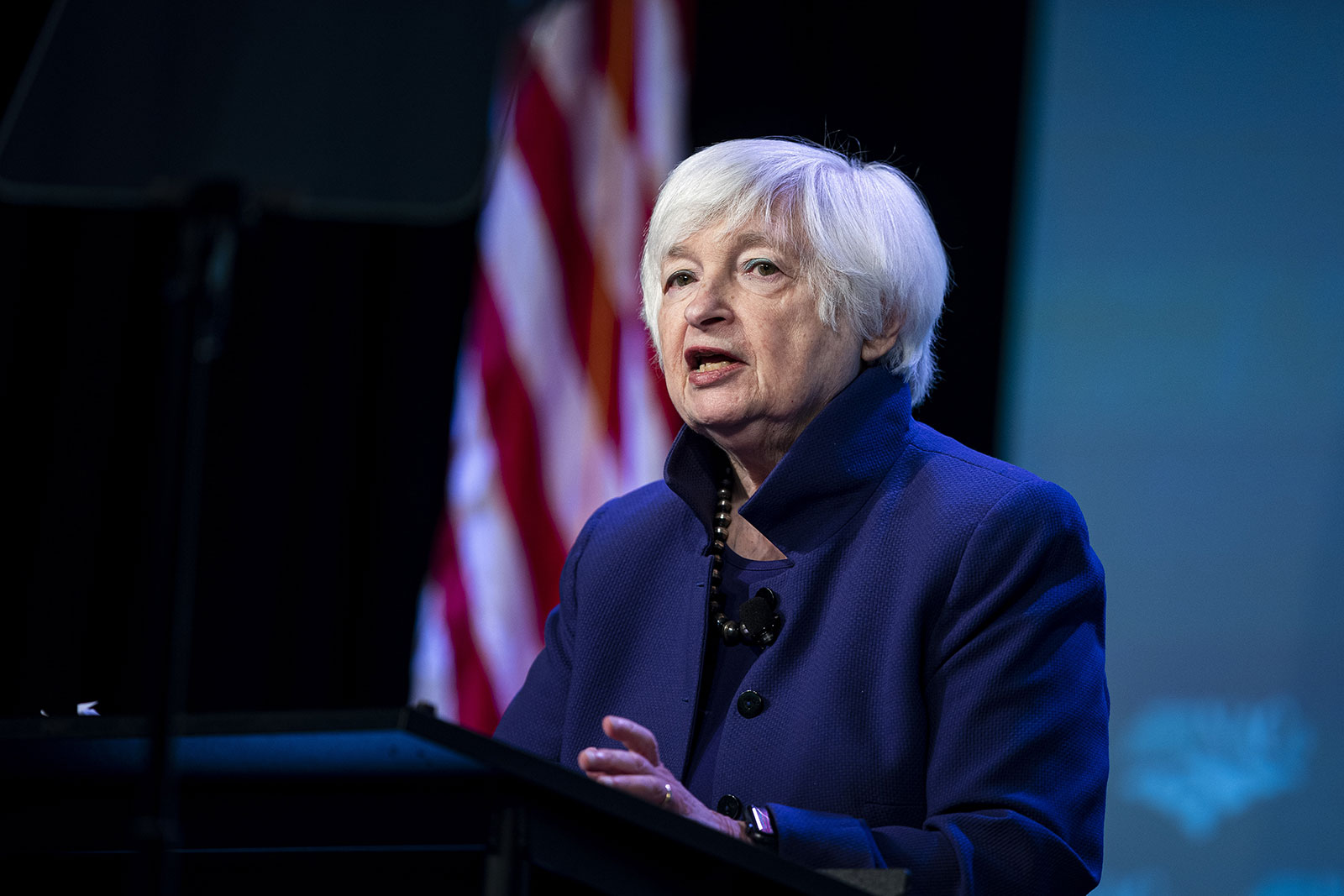
US Treasury Secretary Janet Yellen said earlier Sunday that the government wouldn’t bail out Silicon Valley Bank.
“Let me be clear that during the financial crisis, there were investors and owners of systemic large banks that were bailed out, and we’re certainly not looking,” Yellen told CBS News when asked if there will be a bailout. “And the reforms that have been put in place means that we’re not going to do that again.”
Yellen said she’d been hearing from depositors all weekend, many of whom are “small businesses” and employ thousands of people. “I’ve been working all weekend with our banking regulators to design appropriate policies to address this situation.”
A number of lawmakers are speaking out against the idea of a bailout.
- House Speaker Kevin McCarthy and Senate Majority Leader Chuck Schumer raised concerns about systemic failure in the economy.
- GOP Sen. Mitt Romney of Utah acknowledged the goal of avoiding panic when the markets open on Monday, but expressed concern about what would happen if the actions taken by federal regulators Sunday evening aren’t enough to stop further bank runs.
- South Carolina Sen. Tim Scott, ranking Republican on the Senate banking committee and a possible GOP presidential candidate, warned Sunday evening against “building a culture of government intervention,” saying it “does nothing to stop future institutions from relying on the government to swoop in after taking excessive risks.”
CNN’s David Goldman, Andrew Millman, Aileen Graef, Allison Morrow, Matt Egan, Manu Raju, Aaron Pellish and Jack Forrest contributed to this report.
